Chris Jones, Statewatch
British police officers undercover in protest movements have been shown to have regularly operated outside the UK. Activists, lawyers and MPs have all called for an independent public inquiry in order to reveal the full extent of the practice.
Two-and-a-half years after the unmasking of Mark Kennedy and other police spies in protest movements, new information has emerged that reveals the extent to which police forces across Europe colluded in their deployment. Accusations have been made that police infiltrators were at the forefront of planning protests, acting as agent provocateurs. European law enforcement agencies coordinated these activities in secretive, unaccountable transnational working groups. Police officers formed long-term, intimate relationships with activists, had children with them, and became part of their extended families. The identities of dead children were stolen to create cover “legends.”
Rather than provide answers, this information has given rise to more questions:
• On what grounds was infiltration authorised?
• Did national police forces have knowledge of foreign undercover officers operating on their territory and, if so, did they benefit from information obtained by those officers?
• Is forming relationships with “targets” – including having children with them – official state policy?
• To what extent are undercover deployments demonstrative of coordinated European police operations?
• How many – if any – of the groups infiltrated by undercover agents can be said to warrant such levels of intrusion, and how is this assessed?
Legal challenges and political inquiries have been made – and are ongoing – in an attempt to find answers to some of these questions. Official reviews have been carried out in a number of countries, but those that have been made public – for example in Iceland and the UK – have been condemned as lacklustre and shallow by political activists, journalists and elected representatives. [1] The majority of these reviews have been kept secret, providing no answers to those affected by the actions of undercover officers, while those who authorised and took part in the operations have yet to be called to account. While officials may have occasionally wrung their hands and expressed concern, no heads have rolled – yet. [2]
Repeated calls have been made in the UK for an independent public inquiry into the use of police spies to infiltrate movements, including by a former Director of Public Prosecutions, Ken Macdonald, which have so far been resisted. [3] This article illustrates significant collusion amongst European police forces and arguably only a Europe-wide inquiry, for example by the European Parliament, can go some way towards establishing the extent to which authorities across the continent have undermined civil liberties and human rights.
Operation Herne: 40 Years of Undercover Operations
The largest official review to date is the Metropolitan Police’s Operation Herne, an inquiry that claims to be examining every undercover operation undertaken by the Special Demonstration Squad (SDS), a now-disbanded Metropolitan Police unit that was established after anti-Vietnam war protests in 1968 and operated until 2008. Giving evidence to parliament’s Home Affairs Committee in February this year, Deputy Assistant Commissioner Patricia Gallan told MPs sitting as part of the Home Affairs Committee (HAC):
I must stress we are looking at the activities of a unit… which was initially funded by the Home Office and set up in 1968 and ran for 40 years. There is not a dusty file sitting somewhere within Scotland Yard that we can pull out that will provide all the answers. There are more than 50,000 documents, paper and electronic, that we need to sift through. [4]
Gallan said 31 staff – 20 police officers and 11 police staff – are working on the review and that “the estimated cost to date has been £1.25 million.” The police recently admitted that Herne will take approximately three years to complete. MPs sitting on the Committee expressed disquiet at the cost and the time that the review has so far taken and were particularly critical of undercover police officers building “legends” from the stolen identities of dead children.
The Guardian reported in February that the Metropolitan Police “stole the identities of an estimated 80 dead children and issued fake passports in their names for use by undercover officers.” It was a practice that began in 1968 but which the Met said was not “currently” authorised. The Met subsequently announced an investigation – part of Operation Herne – into “past arrangements for undercover identities used by SDS officers.” [5] Deputy Assistant Commissioner Gallan told the HAC that prior to the Guardian article she knew of only one stolen identity, which she had found out about in September 2012. However, as far back as March 2010 ‘Officer A’ (now known in the press by his cover name Pete Black) told The Guardian that obtaining a cover identity involved “applying for the birth certificate of someone who died at an early age and using this to fabricate a cover story.” [6] The police have yet to contact any of the families of the children whose identities were used by the police. [7]
“Ghoulish and Disrespectful”
The HAC published its report on undercover policing in early March 2013 concluding that the use of dead infants’ identities was “ghoulish and disrespectful” and “abhorrent”, stating that “it must never occur again.” The committee demanded not only that the investigation (and Operation Herne as a whole) be “expedited with all possible haste”, but that “once the identity of the senior responsible leaders has been established, the matter should be referred directly to the IPCC [Independent Police Complaints Commission], which should then investigate the matter itself.” The investigation remains in the hands of the police.
Two days after Gallan gave evidence to the HAC, Met Commissioner Bernard Hogan-Howe replaced her with Chief Constable Mick Creedon of Derbyshire Police “because he believed that public confidence would best be preserved by appointing an independent chief constable.” [8] The HAC noted that “senior leaders were aware of these issues [i.e. objectivity and independence] for several months before the change in leadership” and that “it is important that in future objectivity is ensured from the outset and not only when an operation comes under scrutiny.” Creedon’s most notable public statement on Herne so far relates to the use of dead children’s identities. He admitted in a letter to the HAC that it was “common practice.” [9]
The appointment of a high-ranking police officer from a different force does not guarantee that Operation Herne will get to the truth of the matter. Even were the IPCC given full responsibility for the investigation – rather than simply a “supervisory” role as is currently the case – based on past experience, many would question its ability to carry out its work impartially, even if it is soon to be awarded new powers and access to increased resources. [10] Those who make complaints against the police have found themselves frustrated with the IPCC; its ineffectiveness is one reason why so many people – from political activists to the UN Special Rapporteur on Freedom of Assembly and Association – have demanded an independent public inquiry into the undercover policing saga. As The Guardian’s Rob Evans put it:
This [Herne] appears to be a review of 40 years of undercover operations covering serious allegations of misconduct, but the public is being told nothing about what is going on. Like all the other 11 inquiries set up following disclosures surrounding the police spies, it is being held behind closed doors, with no input from those who were affected by the spying. It is a far cry from an over-arching full public inquiry which many including former DPP [Director of Public Prosecutions], Ken MacDonald, have called for, but there are no prizes for guessing what the authorities would prefer. [11]
Legal Challenge: Police Obtain Secret Hearing
An ongoing court case has reinforced the perception that the authorities would prefer as little transparency and accountability as possible. In December 2011, eight women announced that they were bringing a court case against the Metropolitan Police for the actions of five officers: Mark Kennedy, Jim Boyling, Bob Lambert, Mark Jenner, and John Dines. A statement issued that month said:
The five undercover officers were all engaged in infiltrating environmental and social justice campaign groups between the mid 1980’s and 2010 and had relationships with the women lasting from 7 months and the longest spanning 9 years.
The women assert that the actions of the undercover officers breached their rights as protected by the European Convention on Human Rights, including Article 3 (no one shall be subject to inhumane or degrading treatment) and Article 8 (respect for private and family life, including the right to form relationships without unjustified interference by the state). The women are also seeking [common law] claims for deceit, assault, misfeasance in public office and negligence, and seek to highlight and prevent the continuation of psychological, emotional and sexual abuse of campaigners and others by undercover police officers. [12]
In January 2013, an initial hearing in the High Court (AKJ and others v Commissioner of the Police for the Metropolis and Association of Chief Police Officers) ruled in favour of an application by the Met for some parts of the case to be heard in the secretive Investigatory Powers Tribunal (IPT). [13] The IPT was established as part of the Regulation of Investigatory Powers Act 2000 (RIPA); legislation that is supposed to provide a legal framework for state surveillance and undercover operations. In hearings before the tribunal “complainants do not see the evidence from the state and have no automatic right to an oral hearing. Neither can they appeal against its decision.” [14] All eight complainants are bringing claims under common law, but only three of them – those who suffered violations after 2000, when the Human Rights Act came into force – can bring human rights claims. They will have to go through the IPT before their common law claims are heard. Solicitor Harriet Wistrich explained after the case: “there is nothing to stop us proceeding with the claims on behalf of the other five claimants.” However,she notes that “given the approach by the police so far, they may apply to strike out our case on different grounds.” [15]
Mr Tugendhat used the sexual adventures of Ian Fleming’s fictional spy James Bond to reason why parliament, when enacting RIPA, would have had intimate sexual relationships in mind as something that may be used by spies. Tugendhat said that:
James Bond is the most famous fictional example of a member of the intelligence services who used relationships with women to obtain information, or access to persons or property. Since he was writing a light entertainment, Ian Fleming did not dwell on the extent to which his hero used deception, still less upon the psychological harm he might have done to the women concerned. But fictional accounts (and there are others) lend credence to the view that the intelligence and police services have for many years deployed both men and women officers to form personal relationships of an intimate sexual nature (whether or not they were physical relationships) in order to obtain information or access… In the 1980s and the 1990s, when RIPA and other statutes were passing through Parliament, everyone in public life would, in my view, have assumed, whether rightly or wrongly, that the intelligence services and the police did from time to time deploy officers as CHIS [covert human intelligence sources] in this way.” [16]
The ruling was condemned by the women who brought the case:
[W]e want to see an end to sexual and psychological abuse of campaigners for social justice and others by undercover police officers. We are outraged that the High Court has allowed the police to use the IPT to preserve the secrecy of their abusive and manipulative operations in order to prevent public scrutiny and challenge. In comparison, the privacy of citizens spied on by secret police is being given no such protection, which is contrary to the principles we would expect in a democratic society. It is unacceptable that state agents can cultivate intimate and long lasting relationships with political activists in order to gain so called intelligence on political movements. We intend to continue this fight. [17]
There have been some positive legal developments following the exposure of police infiltration of the environmental movement. In July 2012, after the Ratcliffe-on-Soar case in which 20 convictions were overturned when it was revealed that the prosecution had not disclosed to the defence evidence gathered by Mark Kennedy, the Director of Public Prosecutions, Keir Starmer, stated that “he had concerns about the safety of the convictions following the Drax power station protest in 2008,” after which 29 people were convicted for halting a train that was carrying coal to the power station. [18] He invited them to appeal, a process which is ongoing. Potential appeals against convictions in other cases are also being considered.
On the whole, however, the law does not seem to be working in favour of activists who have been spied upon. ‘Alison’ (not her real name), one of those who is part of the case recounted above, told the HAC that she submitted to the Metropolitan Police a subject access request under the Data Protection Act, a right intended to allow people to know – with exceptions – what information is held on them by organisations, whether public or private. She was told in a response that “the Commissioner has no information on [her] that he is required to supply.”
The ongoing commitment of the Metropolitan police to secrecy over the undercover infiltration saga is reflected elsewhere. Jenny Jones, a Green Party member of the elected London Assembly, said earlier this year that the Met had been “deliberately obstructive” following her efforts to obtain answers on a number of issues related to undercover officers. The police said in one letter to Jones that ongoing legal proceedings and “the covert nature of undercover policing” meant they were “not prepared to put much of the information you seek in the public domain.” [19] Given that disturbing revelations about undercover policing continue to emerge, it seems that secrecy is as much a damage limitation exercise as it is an attempt to ensure that police infiltration tactics remain covert.
Questions Across Europe
Mark Kennedy is believed to be the best-travelled of the police’s former undercover operatives, having been to Ireland, Germany, Spain, Denmark, France, the USA, Italy, and Iceland, amongst other places. [20] His exposure led to demands in many of those countries for official information about his activities, but as will be demonstrated, in most cases this has not been forthcoming or failed to reveal anything substantial. What some of these enquiries have revealed is that authorities across Europe appear to be collaborating to ensure that as little substantive information as possible comes to light on undercover police operations.
Ireland
A report drawn up by the Garda Síochána in the months following Kennedy’s exposure as a spy has never been published. Kennedy spent a significant amount of time in Ireland, participating in workshops and demonstrations, including those against the EU summit in May 2004. [21] In January 2011 the Irish Examiner reported claims that, for the summit, Kennedy “brought a van from Britain containing crash helmets and offered to purchase broom handles to be used in combating gardaí.” An activist who played host to Kennedy said that “he was always very supportive of ‘direct action’ protest. It’s disturbing that he would seem to have been acting as a ‘agent provocateur’ attempting to get people into trouble.” [22]
Days later, the Examiner again reported on Kennedy’s activities. Despite repeatedly telling the paper that they had “no information” on the case, it was reported that “Garda bosses will admit in a report to Justice Minister Brendan Smith that they knew about [Kennedy’s] presence [in Ireland].” The Examiner revealed that “senior Garda intelligence officers – attached to the Crime and Security Branch – had known all along about Mr Kennedy after being informed by the British Metropolitan police. Crime and Security did not inform local senior gardaí in the areas where Kennedy was active for fear of blowing his cover.” [23] In April 2011, a Sinn Fein representative in the Dáil, the Irish parliament, complained that “we have still to receive a report on what exactly he was doing in this country, on whose behalf he was working and whether the Gardaí were aware that he was here.” It appears that this report reached only a very limited number of officials. [24]
Iceland
In Iceland, the National Security Unit of the National Commissioner published a report on Kennedy’s activities in the country in May 2011. It included details of his infiltration of the environmental group Saving Iceland between 2005 and 2007. The Reykjavík Grapevine [25] noted that Kennedy undertook:
[P]roactive investigations to collect information in order to prevent possible actions…the Iceland police did not have such powers in 2005 and still do not. That should have made any local cooperation with the British spy illegal, just as any other proactive spying initiative would have been.
Saving Iceland was less than impressed with the report: “we have to express our astonishment if Ögmundur Jónasson, the Minister of the Interior, is going to accept as valid the poorly reasoned cover-ups that are resorted to by the report’s authors.” According to Saving Iceland, the report says that:
During an overhaul of data at the National Commissioner’s office, no information came to light that makes it possible to ascertain if [Mark Kennedy] was here in Iceland with the knowledge of the police or with their collaboration in 2005. [26]
Saving Iceland criticised the report and argued that neither the Minister of the Interior nor the National Commissioner had answered questions from their lawyer seeking further information on police surveillance of the group and clarification of the specific wording of the terms of reference given by the Interior Ministry to the National Commissioner. The group said that it is clear that the authors “entirely avoid answering the questions about Saving Iceland and Mark Kennedy that it was reportedly supposed to answer.” Furthermore:
It is clear that the National Commissioner admits to have worked closely with the British authorities concerning the surveillance of Saving Iceland. He also admits to have received information not only from abroad but also from within Iceland. This information has been gathered by spying, in other words: by violating the privacy of our personal lives. To state that no recorded documents can be found in the offices of the National Commissioner about this cooperation with the British authorities is nothing but obvious evasions.
Germany
In Germany, where both Mark Kennedy and a spy still known only by his cover name Mark Jacobs were deployed a number of times, parliamentary representatives for Die Linke have repeatedly made use of the right to ask extended questions of the Federal Government to obtain further information on the activities of individual undercover operatives and international police networks engaged in infiltration and surveillance. These efforts have yielded significant new information. Most recently the German Interior Ministry stated that entering into sexual relationships as part of an investigation is not permitted in any area of the Federal Government’s responsibility, a stipulation that also applies to foreign police agents operating in Germany. However, questions have also frequently been answered with the statement: “For reasons of confidentiality, the Federal Government is not able to respond to these questions in the part of the answer to this minor interpellation that is intended for publication.” [27]
Die Linke MP Andrej Hunko wrote to the British Home Secretary Theresa May in February 2013 outlining the German government’s acknowledgement that no undercover officers operating on German territory can lawfully engage in sexual relationships, and stated that the German Interior Ministry and the Federal police (Bundeskriminalamt, BKA) must “obtain clarification from the British authorities as to whether Mark Kennedy or ‘Mark Jacobs’ also used personal and sexual relationships in Germany in order to obtain information. And the same applies to any of their fellow officers.” He also sought clarification over whether British officers may have covertly recorded conversations, because “spying operations like that require a warrant” and so there may have been “yet another infringement of the law.”
Hunko has requested that May identifies “who was responsible for ordering their deployment to Berlin and which German authorities received reports about it” so that “action may also be taken against any infringements of law by British police officers in the capital of Germany.” This is going to take some work, especially as the Berlin police have recently said that neither Kennedy nor Jacobs ever worked for them. A letter from a Berlin politician to Hunko said that “as a result of their review, the Berlin police announced that neither the former British undercover agent, Mr Mark Kennedy, nor a person named Marco Jacob had been used by the Berlin police.”
In a reply three weeks later from Damien Green, the UK’s Minister for Police and Criminal Justice, Hunko’s requests were rejected with arguments that have been used repeatedly by the police since the initial exposure of undercover officers. Green refused to confirm or deny whether ‘Mark Jacobs’ was a British undercover officer due to the fact that his identity had not been confirmed in the exceptional manner that Kennedy’s was following his exposure. He went on: “My officials and those of the Bundesministerium des Innern have already been in contact about these issues…We will ensure that the German authorities are regularly updated as to the progress of the investigation, known as Operation Herne, which is currently underway.”
In response to Hunko’s statement that it needed to be made clear under whose authority Kennedy was acting and what exactly he did whilst in Germany (potentially covertly recording conversations, for example), the minister dodged the request for assistance in establishing whether the law had been broken: “If you have evidence that German law has been broken, I would recommend you to pass it on to the Bundesministerium des Innern, who can then make an investigative request of the British police or the IPCC via the usual international diplomatic channels.” He summed up: “the current investigation and litigation must be allowed to run their course and therefore, I cannot provide you with more detail about past undercover police operations.”
France
In November 2012, lawyers acting on behalf of Yildune Lévy initiated court proceedings demanding that the French Central Directorate of Interior Intelligence (Direction central du renseignement intérieur, DCRI, akin to UK’s MI5) be forced to reveal the contents of a dossier on which criminal charges against her and a number of others are partially based. In 2008, Lévy was arrested along with Julien Coupat and seven others as part of the ‘Tarnac Nine’ affair in which they were accused of “criminal association for the purposes of terrorist activity.” [28] All were subsequently bailed. Lévy’s lawyers are demanding that a dossier compiled by the DCRI be revealed to the defence an argument that bears similarity to the Ratcliffe-on-Soar case in the UK which collapsed after it was revealed that the prosecution had failed to disclose evidence gathered by Mark Kennedy. [29] In this case too, it is alleged that information contained in the dossier “is largely based on information supplied by [Kennedy].” [30]
Lévy’s lawyers argue that the dossier submitted to the court by the DCRI does not contain any substantive evidence that could lead to the accusations against her: facts included in the dossier are not necessarily relevant to the charges; the interpretation of those facts is not necessarily correct; and the means by which those facts have been obtained is questionable. It is also argued that revealing the contents of the dossier will shed more light on the role of Mark Kennedy, who was present in Tarnac and allegedly supplied much of the information used by DCRI to bring charges against Lévy and others. As would be expected, the British authorities – in particular the National Public Order Intelligence Unit for whom Kennedy worked – were also recipients of the information obtained by Kennedy. [31] This included information gathered whilst in New York at the same time as Julien Coupat, much of which apparently also made its way to the FBI. Lévy’s lawyers argue that “access to all the elements of the dossier is an absolutely indispensable prerequisite” for obtaining a fair trial. Proceedings are ongoing.
A European Inquiry?
In the UK there have been repeated calls for an independent public inquiry into the police spies saga. Activists, MPs, the former Director of Public Prosecutions, Ken Macdonald, and the UN Special Rapporteur on Freedom of Assembly and Association, Maina Kiai, have all made the argument that only an open and independent public inquiry will reveal the full extent of the practice. In January 2013, Kiai said:
The case of Kennedy and other undercover officers is shocking as the groups in question were not engaged in criminal activities. The duration of this infiltration, and the resultant trauma and suspicion it has caused, are unacceptable in a democracy. [32]
Police and politicians have so far failed to be moved by such statements, saying that ongoing legal proceedings and Operation Herne must be allowed to conclude before any action can be considered. Mick Creedon, the officer now in charge of Herne, has told MPs that the inquiry “will last at least another three years.” [33] Even then, much of the report is unlikely to be made public. Deputy Commissioner of the Metropolitan Police Craig Mackey told the London Assembly’s Police and Crime Committee in October last year: “I don’t know what will be in there, I don’t know what the scope will be…So there may be things that are perfectly acceptable to put in the public domain. There may be other parts…that cannot be.” [34]
While an inquiry in the UK would go some way to establishing exactly what the role of the UK’s police forces and state authorities in infiltrating protest movements over decades has been, it is clear that British authorities have undertaken significant collaborative efforts with their foreign counterparts, a point that raises troubling legal issues. There is much that remains unknown about the remit and powers of international police networks such as the European Cooperation Group on Undercover Activities, the Cross-Border Surveillance Working Group and the International Working Group on Undercover Policing. [35] Meanwhile, the more formal forum of the Council of the European Union has been used in the past to discuss different national legal frameworks for the deployment of undercover officers and to find ways of overcoming obstacles. [36] The German and UK delegations to the Council have also lobbied for undercover deployments to be removed from the scope of the European Investigation Order – their inclusion would have gone some way to harmonising the legal framework and potentially increasing parliamentary accountability. (Even if they were included it is unclear whether the European Investigation Order is a desirable piece of legislation. One analysis argues that “many of the changes proposed to the current legal framework would constitute a reduction in human rights protection and even…an attack on the national sovereignty of Member States.”) [37]
The deficiencies of reports issued and enquiries undertaken so far at national level has led to an ongoing effort to try and establish some form of Europe-wide inquiry, perhaps via the European Parliament. Such an initiative is not without precedent – the European Parliament undertook a major inquiry into the CIA’s rendition operations which went some way towards uncovering the extent of European state complicity in the USA’s global kidnap and torture programme. One problem such an inquiry would have is its inability to compel individuals or agencies to provide evidence. As has been demonstrated, those involved in directing and carrying out the infiltration of protest movements have not been keen to release information about it. European parliamentary questions to the Council and Commission are being prepared on the issue of accountability under national, European and international law for human rights violations committed by undercover police officers. This may be the first step on a long road towards stitching together what is currently a patchwork of attempts across Europe to obtain answers and accountability.
____________________________________________________________
Undercover Cops Uncovered
The following is a list of undercover officers involved in infiltrating and disrupting protest movements and social justice campaigns who have been exposed in the last few years. The first name listed is their cover name. If there is a name in brackets, it is the individual’s real name. It is worth noting that the Metropolitan Police have only officially acknowledged that Mark Kennedy was an undercover police officer; they refuse to do so for any other individual.
Bob Robinson (Robert/Bob Lambert) [38]
Infiltrated London Greenpeace and the Animal Liberation Front from 1984-88. Had a child with one of his “targets”. Has been accused in parliament by Caroline Lucas MP of participating in an arson attack on a department store. Later promoted to Head of Operations in the Special Demonstration Squad. Went on to run Special Branch’s Muslim Contact Unit. Awarded MBE for services to policing. Currently works as an academic at St Andrews University.
Jim Sutton (Andrew James Boyling) [39]
Infiltrated Reclaim the Streets from 1995-2000. Formed a relationship with a “target”, disappeared, and resurfaced a year later admitting to the woman that he was a police officer. They married and had two children but divorced in 2009.
John Barker (John Dines) [40]
Infiltrated a number of groups including London Greenpeace and squatting groups between 1987 and 1992. Had a five-year relationship with one of his “targets”.
Lynn Watson [41]
Based in Leeds, from 2003-08 she infiltrated numerous environmental, anti-capitalist and peace groups: Aldermaston Women’s Peace Camp, UK Action Medics Collective, Drax Climate Camp, Dissent! and others.
Mark Cassidy (Mark Jenner) [42]
Infiltrated the Colin Roach Centre, the Building Workers Group, Hackney Community Defence Association and, allegedly, Anti- Fascist Action and Red Action between 1995 and 2000. Had a four-year relationship with a woman now known publicly as ‘Alison’. Bob Lambert was his boss.
Simon Wellings [47]
Was exposed after five years with the group Globalise Resistance (2001-05) when he accidentally phoned an activist friend whilst discussing photos of and information on the group with officers at a police station.
Mark Stone (Mark Kennedy) [44]
Spent seven years undercover, from 2003 until exposure in October 2010 by former friends and comrades. Travelled far and wide across the UK and Europe and worked with groups such as Dissent!, Rising Tide, Saving Iceland, Workers’ Solidarity Movements, Rossport Solidarity, Climate Camp, Climate Justice Action and others.
Peter Daley/Pete Black (Peter Francis) [45]
Infiltrated anti-racist and anti-road campaigns between 1993 and 1997 and slept with two activists during that time. He was in Special Branch before joining the Special Demonstration Squad where he used the identity of a four-year old who had died of leukaemia as his cover. His real name is unknown but he went to the press with stories of his time as an undercover officer in March 2010, before the exposure of Mark Kennedy in October.
Rod Richardson [46]
Infiltrated anti-capitalist and hunt saboteur groups, in particular working with groups protesting against political summits such as the G20. Went abroad to Sweden, France and Italy at various times.
Mark/Marco Jacobs [43]
Operated from 2004 to 2009, infiltrated anarchist, anti-militarist and migration campaigns. Travelled abroad to Germany and France (on a number of occasions with Mark Kennedy).
Unnamed Officer
Cover name and real name unknown, but was noted in a January 2012 article in the Guardian that outlined Bob Lambert’s fathering of a child with an activist. The article said that he was “sent to spy on activists some years ago” and “had a short-lived relationship with a political activist which produced a child.” After leaving the relationship and the child, he used ongoing police monitoring reports to “regularly read details of her life,” watching “as she grew older and brought up their child as a single parent.” [48]
____________________________________________________________
Endnotes
[1] See notes [3], [4], [11], [19], [24], [25], [26], [32], [35]
[2] Ibid.
[3] Ken Macdonald, Police undercover work has gone badly wrong. We need a public inquiry, The Guardian, 4.2.13: http://www.theguardian.com/ commentisfree/2013/feb/04/police-ipcc
[4] House of Commons Home Affairs Committee, Undercover Policing: Interim Report, 26.2.13: http://www.statewatch.org/news/2013/mar/uk-homeaffairs-committee-undercover-policing.pdf
[5] Paul Lewis and Rob Evans, Police spies stole identities of dead children, The Guardian, 3.2.13: http://www.guardian.co.uk/uk/2013/feb/03/police-spies-identities-dead-children
[6] Tony Thompson, Inside the lonely and violent world of the Yard’s elite undercover unit, The Guardian, 14.3.10: http://www.guardian.co.uk/uk/2010/mar/14/undercover-police-far-left-secret
[7] Heather Saul, Families of dead children whose identities were used by undercover police have not been informed, The Independent, 16.7.13: http://www.independent.co.uk/news/uk/crime/families-of-dead-childrenwhose-identities-were-used-by-undercover-police-have-not-beeninformed-8710867.html
[8] Ibid. at [4] Informants, spies and subversion 21
[9] Jamie Grierson, Dead children’s names used as aliases by undercover police at Scotland Yard, The Independent, 17.5.13: http://www.independent.co.uk/news/uk/crime/dead-childrens-names-used-as-aliases-byundercover-police-at-scotland-yard-8621072.html
[10] Alan Travis, Theresa May to expand IPCC in crackdown on police corruption, The Guardian, 12.2.13: http://www.guardian.co.uk/politics/2013/feb/12/theresa-may-ipcc-police-corruption
[11] Rob Evans, Secretive review into claim that police spy set fire to Debenhams, The Guardian, 25.6.12: http://www.guardian.co.uk/uk/undercover-with-paul-lewis-and-rob-evans/2012/jun/25/undercover-police-arson-debenhams-bob-lambert
[12] Legal action against Metropolitan police, Police Spies Out of Lives, 16.12.11: http://policespiesoutoflives.org.uk/legal-action-against-metropolitan-police
[13] [2013] EWHC 32 (QB), High Court Judgment, 17.1.13: http://www.statewatch.org/news/2013/jan/uk-police-undercover-judgment.pdf
[14] Paul Lewis and Rob Evans, Police spies court case suggests sexual relations with activists were routine, The Guardian, 17.1.13: http://www. guardian.co.uk/uk/2013/jan/17/spies-sexual-relations-activists-routine
[15] Harriet Wistrich, Explaining the judgment over secret tribunal, Police Spies Out of Lives, 23.1.13: http://policespiesoutoflives.org.uk/explaining-the-judgment-by-harriet-wistrich
[16] Ibid. at [13]
[17] Outrage as High Court permits Secrecy over Undercover Policing, Police Spies Out of Lives, 17.1.13: http://policespiesoutoflives.org.uk/outrage-as-high-court-permits-secrecy-over-undercover-policing
[18] Keir Starmer QC invites Drax power station protesters to appeal, BBC News, 3.7.12: http://www.bbc.co.uk/news/uk-england-york-north-yorkshire-18689448
[19] Getting answers from the police on undercover deployments “will be a long process”, Statewatch News Online, January 2013: http://database.statewatch.org/article.asp?aid=32065
[20] Mark Kennedy: A chronology of his activities, Powerbase: http://www. powerbase.info/index.php/Mark_Kennedy:_A_chronology_of_his_activities
[21] Scott Millar, Questions remain over undercover activists, Irish Examiner, 22.1.11: http://www.irishexaminer.com/archives/2011/0122/ireland/questions-remain-over-undercover-activist-142905.html
[22] Ibid.
[23] Cormac O’Keeffe and Scott Millar, Presence of undercover officer ‘known to Gardai’, Irish Examiner, 26.1.11: http://www.irishexaminer.com/ireland/presence-of-undercover-officer-known-to-gardai-143204.html
[24] Daíl debates, 19.4.11: http://oireachtasdebates.oireachtas.ie/debates%20authoring/debateswebpack.nsf/takes/dail2011041900022?opendocument
[25] Snorri Páll Jónsson Úlfhildarson, Back to the future, The Reykjavík Grapevine, 21.5.12: http://grapevine.is/Home/ReadArticle/BACK-TO-THE-FUTURE
[26] Covers-ups and evasions condoned by the Minister of the Interior, Saving Iceland, 20.5.11: https://www.savingiceland.org/2011/05/cover-ups-and-evasions-condoned-by-the-minister-of-the-interior
[27] German Bundestag, Answer of the Federal Government, 31.5.12: http:// www.statewatch.org/news/2012/aug/eu-bundestag-secret-police-networksen.pdf
[28] U.S. support committee for the Tarnac 9 formed, Infoshop News, 30.9.08: http://news.infoshop.org/article.php?story=20081130161319467
[29] Danny Chivers, Undercover and over-the-top: The collapse of the Ratcliffe trial, New Internationalist Magazine, 12.1.11: http://newint.org/features/web-exclusive/2011/01/12/undercover-and-over-the-top-collapse-of-ratcliffe-trial
[30] L’espion anglais qui a piégé le groupe de Tarnac, Le Monde, 8.11.12: http://www.lemonde.fr/societe/article/2012/11/08/l-espion-anglais-qui-apiege-le-groupe-de-tarnac_1787480_3224.html
[31] Camille Poloni (translation into English by Élodie Chatelais), Mark Kennedy: A mole in Tarnac: http://euro-police.noblogs.org/2012/04/mark-kennedy-a-mole-in-tarnac
[32] UN Special Rapporteur calls for a “judge-led public inquiry” into undercover police operations and condemns a number of other police practices, Statewatch News Online, January 2013: http://database.statewatch.org/article.asp?aid=32086
[33] Rob Evans and Paul Lewis, Police spies’ use of dead children’s identities was common, MPs told, The Guardian, 17.5.13: http://www.guardian.co.uk/uk/2013/may/17/police-spies-dead-children-identities-common
[34] Ibid. at [19]
[35] See the Statewatch News Online coverage of these groups for more information: Parliamentary questions in Germany reveal further information on European police project aimed at enhancing covert investigative techniques, November 2012: http://database.statewatch.org/article.asp?aid=31966; Another secretive European police working group revealed as governments remain tight-lipped on other police networks and the activities of Mark Kennedy, August 2012: http://database.statewatch.org/article.asp?aid=31792; Parliamentary scrutiny unveils undercover “secret police networks”, February 2012: http://database.statewatch.org/article.asp?aid=31248
[36] Overview of replies to questionnaire on undercover officers – texts of national legislation: http://database.statewatch.org/article.asp?aid=29050; Undercover police: Latest: Overview of replies to questionnaire on undercover officers: http://database.statewatch.org/article.asp?aid=28477
[37] Steve Peers, The proposed European Investigation Order: Assault on human rights and national sovereignty, Statewatch analysis, May 2010: http://www.statewatch.org/analyses/no-96-european-investigation-order.pdf
[38] Rob Evans and Paul Lewis, Progressive academic Bob Lambert is former police spy, The Guardian, 16.10.11: http://www.theguardian.com/uk/2011/oct/16/academic-bob-lambert-former-police-spy
[39] Paul Lewis, Rob Evans and Rowenna Davis, Ex-wife of police spy tells how she fell in love and had children with him, The Guardian, 19.1.11: http://www.theguardian.com/environment/2011/jan/19/wife-fourth-police-spy-children
[40] Amelia Hill, Paul Lewis and Rob Evans, Brother of boy whose identity was stolen by police spies demands apology, The Guardian, 6.2.13: http://www.theguardian.com/uk/2013/feb/06/brother-boy-identity-police-spies
[41] Rajeev Syal and Martin Wainwright, Undercover police: Officer A named as Lynn Watson, The Guardian, 19.1.11: http://www.theguardian.com/uk/2011/jan/19/undercover-police-officer-lynn-watson
[42] Paul Lewis and Rob Evans, Police spies: in bed with a fictional character, The Guardian, 1.3.13: http://www.theguardian.com/uk/2013/mar/01/police-spy-fictional-character
[43] Rajeev Syal, Undercover police: Officer B identified as Mark Jacobs, The Guardian, 19.1.11: http://www.theguardian.com/uk/2011/jan/19/undercover-police-officer-mark-jacobs
[44] Rob Evans and Paul Lewis, Undercover officer spied on green activists, The Guardian, 9.1.11: http://www.theguardian.com/uk/2011/jan/09/undercover-office-green-activists
[45] Stephen Wright and Richard Pendlebury, SPECIAL INVESTIGATION: A very troubled undercover cop and growing doubts over the police ‘plot’ to smear the Lawrence family, Daily Mail, 19.7.13: http://www.dailymail.co.uk/news/article-2369754/SPECIAL-INVESTIGATION-A-troubled-undercovercop-growing-doubts-police-plot-smear-Lawrence-family.html
[46] Paul Lewis and Rob Evans, Rod Richardson: the mystery of the protester who was not who he claimed, The Guardian, 6.2.13: http://www. theguardian.com/uk/2013/feb/06/rod-richardson-protester-never-was
[47] Meirion Jones and Anna Adams, Undercover police work revealed by phone blunder, BBC News, 25.3.11: http://www.bbc.co.uk/news/uk-12867187
[48] Rob Evans and Paul Lewis, Undercover police had children with activists, The Guardian, 20.1.12: http://www.guardian.co.uk/uk/2012/jan/20/undercover-police-children-activists
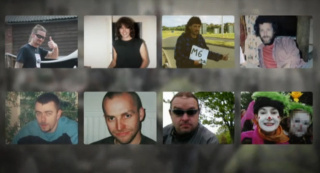

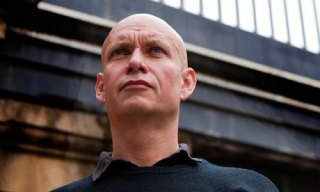

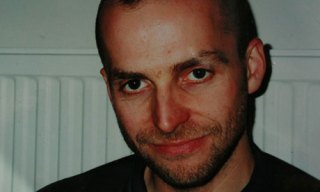
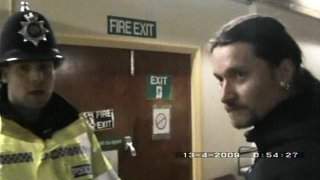
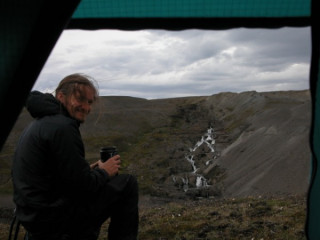
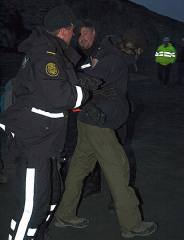
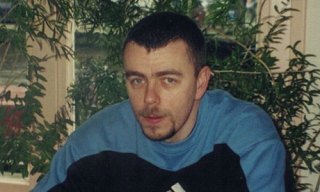

“What’s it like to find out that a person you have trusted for years is actually an undercover agent sent to spy on you and your friends? Spied Upon is a documentary film, planned for release in 2014, that shows the effects of this experience while revealing at a human scale today’s complex international spying apparatus, a system that appears to have spun completely out of control.”
http://www.spiedupon.com/
Yes, Mark Kennedy, the British police spy who spent many years undercover in environmental groups. Spied Upon tells the story of how this internationally scandalous operation and others like it work.
Your support is crucial to help bring this film to people across the world, and to help stop current abuses happening to people because of a modern-day spying apparatus that has spun completely out of control!
Please visit http://www.indiegogo.com/projects/spied-upon
I have been campaigning for over 6 years to have deceased children’s birth certificates marked so that they cannot be used in an act of fraud. As my late brother’s birth record was used by the grave robber John Darwin to get a passport my late brother was only 34 days old when he died in 1950.The only excuse the general passport office could come up with was that people move abroad and that it would be difficult to match birth and death records bullshit. The real reason is that they have been using them for undercover work for over 40 years. What else do they use deceased loved one’s birth records for new identities for killers like Jon Venebles, Thompson, Maxine Carr,ect,ect. Its a possibility the home office and the ministry of justice have not replied back it has got me thinking why will they not tell me the truth yes or no so simple. I have asked the government to give the parents of deceased children the right when they have to register there loved one deceased to have the birth record marked again so simple. All lets hope that the truth will come out to be honest the government will do what it does best lie and lie again.
Cheers Alfie.